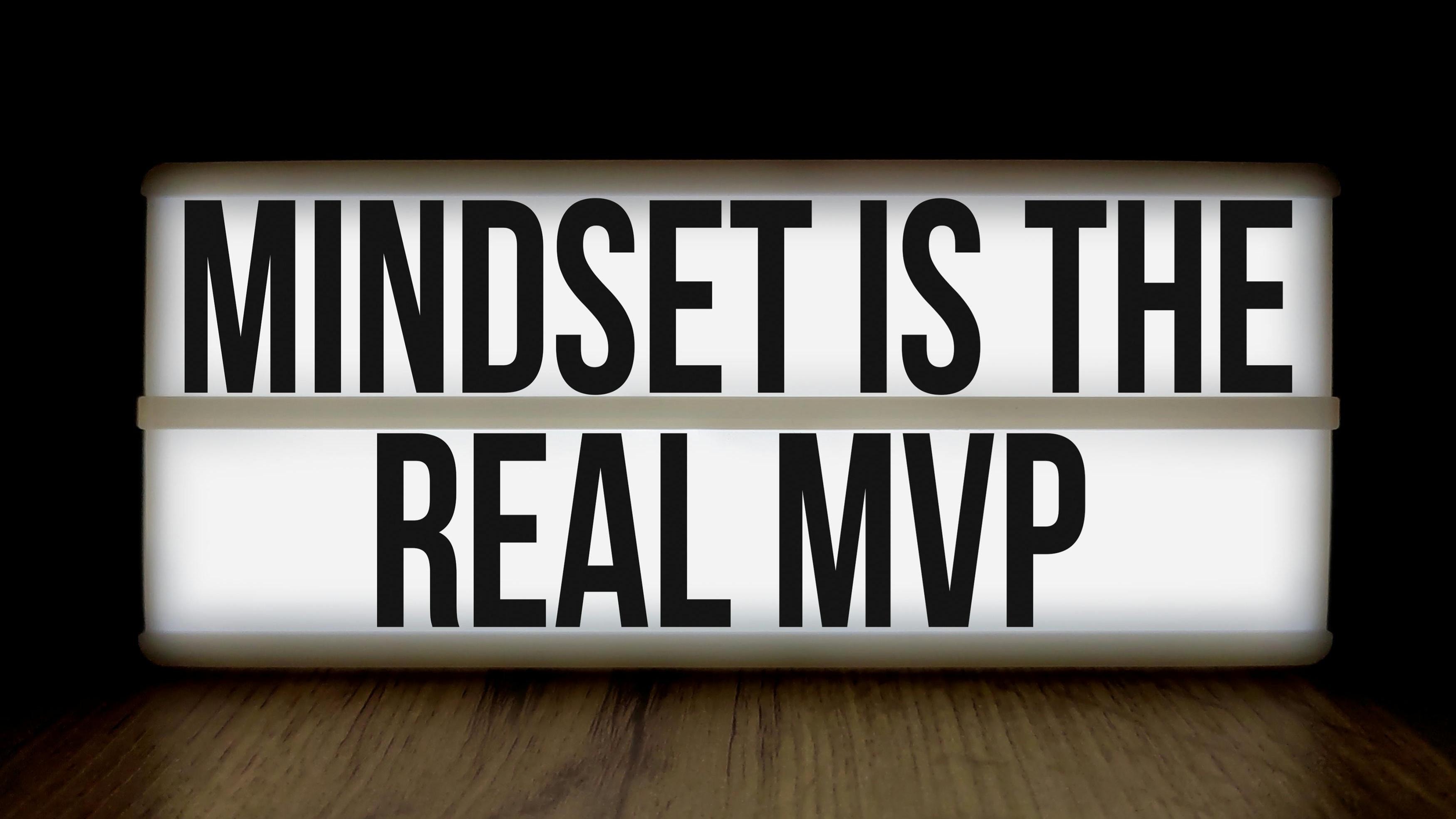Let’s be real: not every day at work feels like a productive powerhouse. Some days, it’s a struggle to get out of first gear—tasks pile up, distractions creep in, and your motivation seems to vanish. Sound familiar? The good news is, you’re not alone, and better yet, there’s a way to turn it around.
I started reflecting on this topic while waiting at an airport after successfully delivering a program on being at our psychological best at work. It dawned on me that all significant and risky attempts start in the same place—our minds.
Every decision we make begins with one of two doors in our minds: one that blocks us from action and the other that drives us toward it. In my experience as a facilitator in leadership and influence, I’ve noticed that too often, we open the door that blocks us, letting doubt, hesitation, or fear take over.
Imagine this: Instead of letting that hesitation win, you harness your mindset to choose the door toward action. You’re powering through tasks, hitting your goals, and feeling great about your progress. No, it’s not a fantasy. Small, intentional changes can help you transform and enhance team productivity and mindset.
This guide isn’t about working harder; it’s about working smarter. Together, we’ll explore strategies to manage distractions, boost work performance, and create a work-life balance that works for you.
Ready to dive in?
Why Mindset is Your Secret Weapon at Work

Have you ever sat down to tackle a big project, only to feel completely overwhelmed before you even start? Or caught yourself thinking, “I’m just not good enough to handle this”?
That’s the power of mindset in action—it’s the invisible force that shapes how you approach challenges, how you perform, and ultimately, how you succeed.
The best part? Your mindset isn’t fixed. It’s something you can actively shape and control.
Here’s a Cool (and True) Fact
Your brain starts preparing for action 7 seconds before you consciously decide to do something. Wild, right? This phenomenon, known as the readiness potential, was first identified by neuroscientist Benjamin Libet. His groundbreaking study demonstrated how unconscious brain activity begins well before we are consciously aware of our decisions. Read more about readiness potential and Libet’s findings here.
If your gut reaction is, “I’m not ready for this,” your brain sets the stage for struggle before you’ve even started. On the flip side, if your first thought is, “Let’s figure this out,” your brain primes itself for problem-solving and success. Those few seconds are powerful, silently working behind the scenes to shape your overall performance too.
Why Mindset Matters More Than You Think
Think of your mindset as the GPS for your day. When it’s set correctly—focused, optimistic, and adaptable—it guides you toward your goals with purpose and clarity.
But when it’s left unprogrammed—clouded by doubt or negative self-talk—you’re more likely to get lost in distractions or paralyzed by indecision.
Your mindset doesn’t just influence the big moments, like presentations or tough conversations. It also shapes how you approach everyday tasks, from responding to emails to managing team dynamics.
Programs like Influence Without Authority training can help you hone a strong, intentional mindset, equipping you to navigate challenges and lead effectively even in complex situations.
A strong mindset can be the difference between feeling empowered or defeated, productive or stuck.
The Good News? Mindset Is a Skill You Can Build
The most exciting thing about mindset is that it’s not something you’re born with—it’s something you develop.
Sure, everyone has moments of doubt, but the key is learning how to recognize those thoughts and shift them into something constructive.
With practice, you can train your brain to work for you instead of against you.
- Start Small: Next time you’re faced with a tough task, pause and notice your first thought. Is it helpful or harmful? If it’s the latter, try reframing it. For example, replace “This is too hard” with “This is a challenge I can grow from.”
- Consistency Is Key: Just like building a muscle, strengthening your mindset requires consistent effort. Over time, small shifts in how you think can lead to big changes in how you perform.
Mindset in Action
Picture this: You’re given a last-minute assignment that feels impossible to complete on time. Your instinctive thought might be, “There’s no way I can pull this off.”
But instead of spiraling, you pause, take a deep breath, and reframe it: “I’ve faced tight deadlines before. I’ll break this into steps and focus on one thing at a time.”
That small mental shift turns panic into productivity. It’s not about ignoring the challenge; it’s about changing how you respond to it. That’s the power of mindset—it transforms overwhelm into opportunity.
How to Harness Your Mindset and Take Charge of Your Day

Your mindset isn’t fixed—it’s something you can shape and strengthen over time.
Here’s how to start building a more productive, resilient approach to work:
1. Start Your Day with Intention
Ever notice how chaotic mornings can throw your entire day off track? You wake up late, skip breakfast, and rush to tackle the first thing that pops up in your inbox.
No wonder you feel scattered! Starting your day with intention helps you reclaim control.
- Why It Works: Setting a clear focus in the morning gives your day structure. It reduces decision fatigue and helps you prioritize.
- Try This: Dedicate 5–10 minutes each morning to planning your day. Write down your top three priorities and review your schedule. Bonus tip: Keep a positive mantra in mind, like “Today, I’ll focus on progress, not perfection.”
2. Reframe Negative Thoughts
We all have that pesky inner voice that chimes in with doubts: “What if I mess this up?” “Am I even good enough for this role?” The trick isn’t to silence these thoughts—it’s to reframe them.
- Why It Works: Flipping the script on negativity helps you approach challenges with confidence and creativity instead of fear.
- Example: When you catch yourself thinking, “I can’t handle this,” counter it with, “I’ve faced challenges like this before, and I’ve grown stronger because of them.” It’s not just positive thinking; it’s retraining your brain to focus on solutions.
3. Celebrate Small Wins
In the hustle to get things done, it’s easy to forget how far you’ve come.
But celebrating small wins—even tiny ones—can give you a confidence boost and fuel your motivation.
- Why It Works: Acknowledging progress, no matter how small, creates momentum. It reinforces the behaviors that lead to success.
- Quick Win: At the end of your day, jot down one thing you’re proud of—big or small. Maybe you finally tackled that email backlog or nailed a presentation. Reflecting on these wins helps you end your day on a positive note.
4. Learn From Setbacks
We all hit bumps in the road—it’s part of the journey. But how you respond to setbacks can make or break your progress. Instead of letting them derail you, treat them as opportunities to grow.
- Why It Works: Reflecting on setbacks helps you refine your approach and build resilience for future challenges.
- Pro Tip: The next time something goes wrong, pause and ask yourself: “What’s one thing I can take away from this experience?” Write it down to remind yourself that setbacks are stepping stones.
5. Surround Yourself with Positivity
Your environment matters. Whether it’s a supportive team, inspiring podcasts, or even a motivational desktop wallpaper, surrounding yourself with positivity can lift your mood and even improve work performance and focus.
- Why It Works: Positive energy reduces stress and increases productivity. It’s easier to stay motivated when your surroundings support your goals.
- Try This: Create a workspace that energizes you. Add a plant, a motivational quote, or even a playlist of songs that make you feel unstoppable.
Mindset in Action: A Real-Life Example

Imagine this: You’ve been assigned a high-stakes project with a tight deadline.
At first, panic sets in. “How will I ever finish this on time?” But instead of giving in to the overwhelm, you break the project into smaller steps, focus on the most urgent tasks, and tackle each one systematically.
Every small win builds your momentum, and before you know it, you’re ahead of schedule.
That’s the power of a strong mindset—it turns “impossible” into “I did it.”
5 Practical Strategies to Boost Work Performance
Boosting work and performance at work, isn’t about logging endless hours at your desk. It’s about working smarter.
These five strategies will help you maximize your output while protecting your energy.
1. Tackle Important Tasks First
Procrastination loves to target the big, daunting, repetitive tasks on your to-do list. The secret? Tackle them first, when your mind is fresh.
Why It Works: Tackling high-priority tasks early builds momentum and ensures meaningful progress.
- Quick Tip: Use the Eisenhower Matrix to categorize your tasks:
- Urgent and important: Handle these immediately.
- Important but not urgent: Schedule them.
- Everything else: Delegate or defer.
2. Set Clear and Achievable Goals
Vague goals like “Be more productive” don’t cut it. You need specific, actionable goals that give you a clear path forward.
Why It Works: Specific goals are easier to track and achieve, which keeps you motivated.
- Example: Break down a big project into smaller, manageable steps. Instead of “Finish the presentation,” try “Research content,” “Create an outline,” and “Design slides.”
3. Declutter Your Workspace
Clutter isn’t just a physical distraction—it’s a mental one too. A clean, organized clean and tidy workspace can do wonders for your focus.
Why It Works: An uncluttered space promotes clarity, reduces stress, and boosts productivity.
- Quick Tip: Spend 10 minutes at the end of each day tidying up. File documents, clear your desk, and start fresh the next morning.
4. Make Meetings More Productive
We’ve all been in meetings that drag on forever without accomplishing much. The key is planning and scheduling meetings to make them intentional and action-oriented. Efficient, well-structured meetings are also a cornerstone of fostering employee performance and engagement, as they align teams, encourage collaboration, and boost morale.
Why It Works: Efficient meetings save time, improve performance, and keep everyone aligned on goals.
- Quick Tip: End every meeting with clear, actionable next steps. Make sure everyone knows what they’re responsible for.
5. Invest in Professional Growth
Your skills are your greatest asset in professional and personal life. Investing in them not only enhances your career but also boosts your confidence and adaptability.
Why It Works: Continuous learning keeps you sharp, engaged, and ready for new challenges.
- Try This: Dedicate one hour a week to personal and professional development. Whether it’s a webinar, a book, or a skill-building course, small, consistent efforts add up.
Simple Tweaks to Improve Work Quality and Productivity

Boosting your productivity doesn’t always mean using new skills or reinventing the wheel.
Often, small, thoughtful adjustments to how you approach your day can make a world of difference.
These simple tweaks can help you stay focused, energized, and effective throughout your workday.
1. Stop Multitasking: Focus on One Task at a Time
Multitasking sounds like a productivity superpower, but it’s actually a myth. Trying to juggle multiple tasks at once divides your attention and often results in mistakes or slower progress to complete tasks. Your brain simply works better when it’s focused on one thing at a time.
- Why It Matters: Concentrating on a single task allows you to give it your full attention, improving both speed and quality.
- Try This: Start your day by prioritizing tasks. Pick the one that needs your undivided attention, block out distractions, and focus solely on completing it. Once it’s done, move on to the next. It’s that simple.
2. Take Regular Breaks to Recharge
When the workload feels heavy, the instinct is often to keep pushing through without taking a pause. But working non-stop can lead to burnout and fatigue, making you less productive in the long run. Regular breaks allow your brain to reset, helping you maintain your energy levels, and focus.
- Why It Matters: Short breaks improve your mental clarity, allowing you to return to tasks with fresh eyes and renewed focus.
- Try This: Use the Pomodoro Technique: work for 25 minutes, then take a 5-minute break. After four cycles, take a longer 15–30-minute pause. Use your breaks to stretch, hydrate, or step outside for fresh air—it makes a bigger difference than you think.
3. Delegate Like a Pro
Trying to do everything yourself is a fast track to burnout. Let’s face it—there’s only so much you can handle on your own. That’s where continuous learning to delegate tasks effectively comes in. It’s not about dodging responsibility; it’s about recognizing when others can step in and take some of the load off your plate.
When you delegate tasks that don’t require your unique expertise, you create space to focus on what truly matters—and you give others a chance to shine and grow.
- Why It Matters: Delegating not only lightens your workload but also helps your team feel more empowered and capable. It’s a win-win for everyone.
- Try This: Take a look at your to-do list and ask yourself, “What’s something I can pass on to someone else?” Start small and build trust as you go. Over time, you’ll find that sharing the load makes work smoother and more rewarding.
Creating a Positive Work Environment

Your work environment isn’t just about the physical space—it’s about the energy, culture, and connections that shape your day.
A positive work environment inspires productivity, fosters collaboration, and makes work feel more meaningful.
1. Celebrate Wins, Big or Small
When was the last time you celebrated something you achieved? It’s easy to get caught up in the grind and forget to acknowledge your progress.
Taking a moment to celebrate accomplishments—whether it’s finishing a project or just surviving a hectic day—boosts morale and keeps motivation high.
- Why It Matters: Recognition, even for small victories, reinforces positive behavior and reminds you of the progress you’re making.
- Try This: At the end of each week, reflect on your wins. Share team accomplishments during meetings, or simply take a moment to acknowledge your own progress privately. Progress is worth celebrating, no matter the size.
2. Encourage Constructive Feedback
Feedback gets a bad rap, but it’s an essential ingredient for personal and professional development and growth. A culture of constructive, open communication helps everyone learn, adapt, and improve.
- Why It Matters: Honest feedback builds trust and provides actionable insights, helping everyone perform better.
- Try This: Start by being open to constructive feedback yourself. Ask your colleagues or manager, “What’s one thing I could do differently to improve?” When giving feedback, focus on solutions rather than problems. A simple tweak in how you approach conversations can make all the difference.
3. Build Stronger Connections
Work is about more than tasks—it’s about relationships. Feeling connected to your colleagues fosters collaboration, makes problem-solving easier, and creates a more enjoyable work experience. Participating in programs like collaboration training can enhance team dynamics and help you achieve better outcomes together.
- Why It Matters: Strong relationships improve teamwork and communication, making challenges easier to tackle together.
- Try This: Take a few minutes each day to check in with your colleagues. A quick “How’s it going?” or even a casual chat about non-work topics can strengthen bonds and create a sense of belonging. Little moments of connection go a long way.
Final Thought: The Power of Small Changes
It’s easy to underestimate the impact of small tweaks, but these minor adjustments to how you work and interact with others can lead to significant improvements in productivity, work quality, and time management and overall job satisfaction.
Whether it’s focusing on one task at a time, taking breaks, or building a more supportive environment, these strategies don’t just make work better—they make it more fulfilling.
Conclusion: Start Small, Stay Consistent
Let’s be honest—making big changes can feel overwhelming, especially when you’re juggling work, deadlines, and everything else life throws at you. But here’s the thing: improving your own healthy work life balance and performance doesn’t have to mean changing everything overnight.
It’s about taking small, intentional steps and sticking with them.
Maybe you start by focusing on one or two strategies from this guide. Perhaps you’ll work on tackling important tasks first or taking regular breaks to recharge.
The key is to pick what feels doable for you and build from there.
Why This Works: Small steps are easier to manage and, more importantly, they build momentum. Each little win adds up, giving you the confidence to keep going.
It’s like planting seeds—consistency is what helps them grow into something amazing.
And remember, it’s not about being perfect. Some days will be smoother than others, and that’s okay. What matters is that you’re making progress.
Here’s the Best Part: These small changes don’t just help you work better—they make your day feel more manageable and even enjoyable.
Whether it’s setting clear goals, creating a positive environment, or giving yourself space to recharge, every effort brings you closer to a better work-life balance.
So, what’s one thing you can start today? Choose it, commit to it, and watch how it transforms your productivity over time. Stay consistent, give yourself grace, and know this: you’ve got what it takes to crush it. You’re on your way!
Key Takeaways
- Prioritize high-value tasks and set clear goals.
- Keep your workspace tidy and your mindset positive.
- Stop multitasking, take breaks, and delegate effectively.
- Invest in professional growth and celebrate your wins.
- Build a supportive, inspiring work environment.








